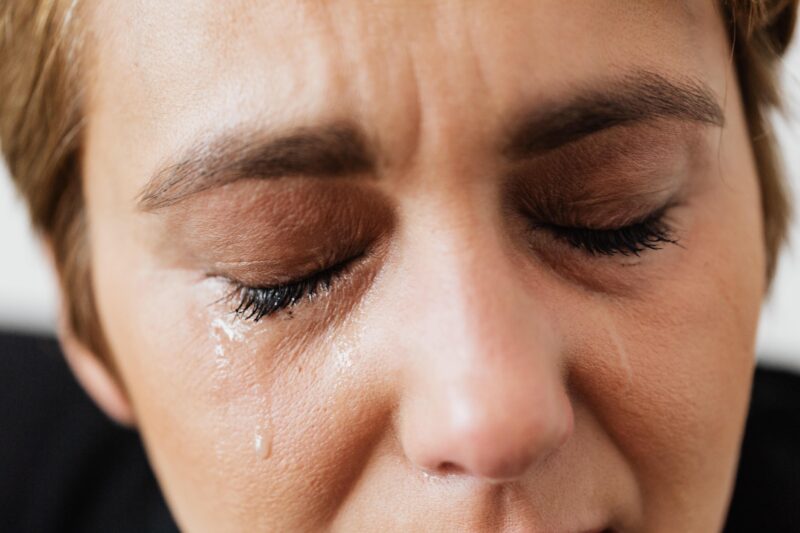
It’s the perfect storm for creating anxiety and fear, particularly here in Melbourne at this time, but also across the world. A summer of ” unprecedented” bushfires. Then an ” unprecedented” Covid-19 pandemic for which there is no cure. A predicted ” unprecedented” economic disaster and images of Australians in dole queues. The Lucky Country. Lock-downs, isolation from family and friends and for older people the grim figures of daily deaths of people in their age group. Children are schooled at home. Families are struggling to keep working if they are lucky to be able to work from home and in fact have a job. Add in winter gloom and it’s no wonder that 4 times the usual number of people accessed mental health services in the last month.
In Victoria were waiting for Sunday 6th September, Father’s Day, when the premier, Dan Andrews announces, we hope, the easing of restrictions. For 6 weeks now, Melbourne has been under curfew from 8pm- 5am. Some 2.6 million Victorians are unable to travel outside a 5 km radius and with only 1 person leaving the house to shop. Regional Victoria has been under stage 3 restrictions which means no visitors and only essential services are open. Viva 70 readers outside Australia are amazed at the compliance of the Victorian community to these severe restrictions for so many months. But we are all working to reduce Covid-19 numbers. It’s estimated that 99% of the second wave of Covid infections in Victoria can be genomically traced to returned overseas travellers living in a mismanaged quarantine system in hotels for 14 days.

For individuals every day brings bad news and it’s been a long haul. There are daily conversations about mental health implications, additional funding for mental health services is being distributed to agencies. At a community level the initial burst of novel Covid activities has somewhat fizzled and people, especially older people are hunkered down, keeping safe and having no visitors. For many Australians a sense of dark times began in November last year with the ferocious bushfires. For all of us, especially those living in Victoria, life has not been ” normal” since February. After a while the inspirational quotes really don’t do it any more. The Instagram quips raise a gentle smile some days but the overwhelming feeling is of a slow, long haul in the dream that we can spend Christmas with our families. Life is about numbers. No. of new infections, death rates, unemployment numbers, Job Keeper numbers. It’s depressing for even the healthiest mind.
Against this deeply felt and worrying backdrop it’s interesting to find a paper written by THE BLACK DOG INSTITUTE, a respected mental health research institute. The paper is entitled Mental Health Ramifications of Covid-19: The Australian Context. It’s a well-researched, evidence based paper written in April 2020. At this stage we didn’t know how Covid would play out, particularly in Victoria, so its interesting to look back at their advice and use their insights as a way of assessing how we have travelled in managing the mental health implications of this crisis.
Looking at previous pandemics, the Black Dog Institute estimates that between 25-33% across the whole population would experience high levels of anxiety and depression. There are also those groups where mental health challenges are going to be long term. Vulnerable groups they have identified are health care workers, those who have been in mass quarantine, the unemployed and the casualised workforce.

In April of this year, what were the strategies advised by the Black Dog Institute to reduce the mental health consequences of Covid-19?
- Practical Support to address basic fears- financial strategies, plans for job growth, Job Keeper, Job Seeker, employment, sick leave and rent support. Research shows that job insecurity increases anxiety and depression in the community 3 fold.
- Good quality information from a trusted central source. Specifically, accurate, evidence based facts about causes, risks, symptoms. One primary website for information that is current and has authority. The Black Dog Institute also talks about the need to emphasize PHYSICAL distancing doesn’t mean SOCIAL distancing. It’s critical people pick up the phone and speak to each other and continue to engage with the world around them.
- Technology enabled delivery of medical services- doctors, psychiatry, psychology
- And this one is very interesting…….. The negative mental health impacts of mass quarantine need to be understood and managed. Think back to the lock down of public housing towers in Melbourne and also the returned travellers confined to a hotel quarantine room for 2 weeks. The institute talks about the need for clear protocols and management of these situations. They also say that residents in the towers and in hotel quarantine need to be valued and the community needs to appreciate their altruism in keeping the community safe. This is critical for mental health of these groups. I think this is a key failing. These groups have been demonized rather than applauded.
- Strengthen the mental health support system for health care and frontline workers. I’m not sure how well we have done this either.
- Mental health screening for Covid-19 patients especially those with long term health damage because of this illness.
Hindsight is a great thing. Clearly governments and agencies were advised in April of the possible mental health impacts of the pandemic. But it’s easy to be a critic with the knowledge and experience we now have. The suicide rate has not increased in 2020 but it was alarmingly high before the pandemic at 9 suicides a day in Australia in 2019 with young people and indigenous people being the most vulnerable groups. (ABS data) It’s clear that aged care and the quarantine system have failed to keep people safe. Support for health care workers is not as effective as it needs to be.
But from a helicopter, Australia is doing an effective job of managing both the health and economic impacts of Covid-19 compared to USA, UK and Sweden. The long term mental health impacts are yet to emerge.
How well do you think we’ve done in managing the metal health impacts of Covid-19?
